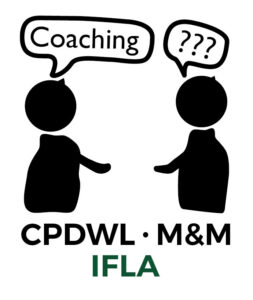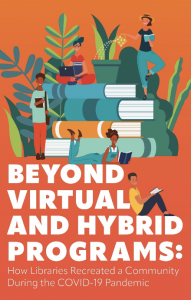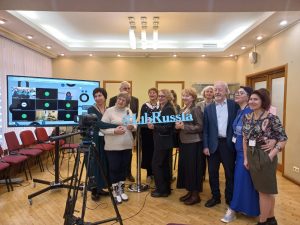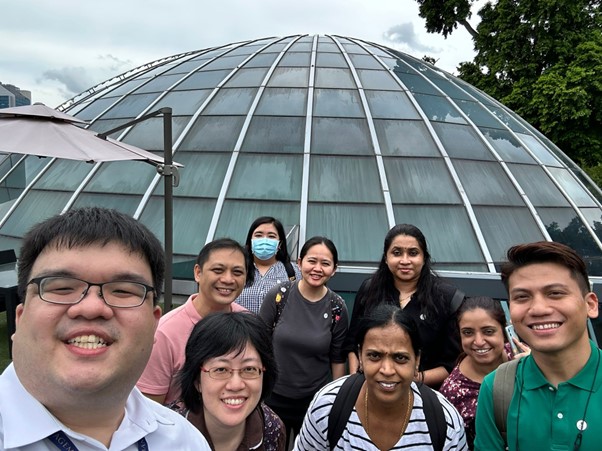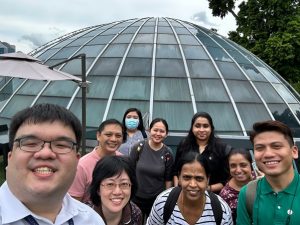Getting ready for #WLIC2023? We are spotlighting professional development trainers and experts in librarianship to talk about their work. In this blog post, we interview Elaine Norlin, Professional Development DEI Coordinator for the Association of Southeastern Research Libraries (ASERL).
Elaina Norlin is the Professional Development DEI Coordinator for the Association of Southeastern Research Libraries. She is an accomplished teacher, technology and leadership development trainer, and writer with extensive leadership experience and a flair for public relations, organizational development, marketing and persuasion and communications. Author of three books, she has delivered over 100 workshops, training sessions, presentations, and institutes both nationally and internationally on marketing, web usability design, facilitation, strategic influence, and conflict management. Self-motivated and results oriented, she is well known for her ability to juggle many projects at once.
Thank you for taking the time to chat with us! Can you briefly tell us about your work and professional development interests?
Norlin: That’s an excellent question, my Professional Development role at the Association of Southeastern Research Libraries (ASERL) keeps me busy and constantly engaged in current trends. As part of my job, I actively seek captivating and enriching content across all cultural heritage spectrum, placing a distinct focus on amplifying diverse and marginalized perspectives. Presently, my primary interest lies in creating and hosting content concerning future and exciting trends within higher education. I am particularly immersed in exploring themes such as enrollment patterns and their convergence with Equity, Diversity, and Inclusion (EDI), projected budget allocations and potential inequities, talent management and employee engagement strategies, educational neuroscience advancements, and the realm of extended reality.
What do you think are the challenges in engaging library staff in professional development activities
Norlin: The majority of librarians I engage with are grappling either with burnout or the frustrations stemming from the pervasive “do more with less” scarcity mindset that occasionally afflicts our profession. This persistent frustration of being unable to match the demands of the workload often leads individuals not have both the time and the energy required for their professional growth. Moreover, the strain of a demanding work environment complicates the task of maintaining a harmonious workplace atmosphere and a well-adjusted work-life balance, posing considerable challenges to prioritizing ongoing professional development.
Another distinct trend I’ve observed is the undeniable prevalence of virtual fatigue. As a consequence of most work interactions transpiring within the virtual space, many individuals encounter difficulties when attempting to engage in online learning, especially as there are an endless number of distractions. Recent post-pandemic research reveals that the online attention span for passive learning is approximately seven seconds—a remarkably brief span. This condensed attention span underscores the essentiality of incorporating more interactive learning methodologies to captivate individuals’ attention and facilitate the absorption of information.
What are some trends or areas in the LIS field for you?
Norlin: This year, the most requested professional development is artificial intelligence, burnout mitigation within the workplace, data science advancements, neurodiversity integration, and the formulation of Diversity, Equity, and Inclusion (DEI) strategies within the backdrop of political backlash. One recent standout was a higher education webinar focused on extended reality—an intriguing topic that resonates with the ever-evolving world of online learning. The discussion centered on the pivotal role of active engagement in inspiring the next generation of students.
Another burgeoning area of concern centers around marketing and advocacy strategies, particularly pertinent in light of the prevailing challenges like book bans, threats, and terminations stemming from the current political climate. While marketing and advocacy have always held importance in the domain of librarianship, the current environment requires an enhanced focus on crisis communication and strategic approaches to swiftly address unforeseen challenges. The need for agile problem-solving has become more evident, as librarians grapple with unexpected scenarios requiring quick but persuasive responses to combat current and future attacks on intellectual freedom.
What resources or opportunities would you like to share to highlight the professional development activities for the LIS community?
Norlin: My advice to librarians is to stay well-versed in the realm of library literature, but concurrently read and watch content that is outside our profession. It’s all too simple to become inward-focused and engrossed solely in resolving immediate library related issues and crises. But with today’s ever changing higher education landscape, it’s very beneficial to allocate time to observe prospective and future trends.
For example, ongoing research consistently shows the fluctuations in higher education enrollment across institutions, with an overall trend of decline in overall numbers. While elite institutions seem to be maintaining a favorable financial outlook, many regional colleges, whether public or private, have grappled with meeting their enrollment targets in recent years. As highlighted by Inside Higher Ed, the pandemic impacted transfer and international enrollment, and this is the second year in terms of the decline. On the other hand, smaller colleges that have refocused their strategy providing more positive student experiences and incorporating innovative and creative learning models are witnessing modest growth in enrollment. As we look more about what’s going on, librarians can become more proactive in terms of reactive when it comes to pivoting and realigning our strategic focus.
Anything else you’d like to share that we didn’t get to talk about?
Norlin: Present Employee Engagement research serves as a clear reminder that a growing number of individuals are becoming disengaged or are quietly stepping back from their responsibilities due to burnout and toxic work environments. In a recent study by the Workforce Institute at UKG, 74% of employees shared that they feel more engaged and happier when they believe their voices matter at their workplaces. However, most employees feel undervalued, leading to a significant increase in the number of people disengaging from their work, which now accounts for over 69% of the workforce.
So, my advice that I tell library organizations who want to actively work on morale is to observe workplace trends, but also to consistently seek solutions that can truly transform the work environment. There are actionable steps we can take to improve our work settings. The first step involves looking beyond our own profession to identify what’s effective elsewhere and how we can apply those practices. This empowerment leads to a workforce that feels confident in making decisions that positively influence their work, thus setting in motion a positive cycle of engagement and innovation.

